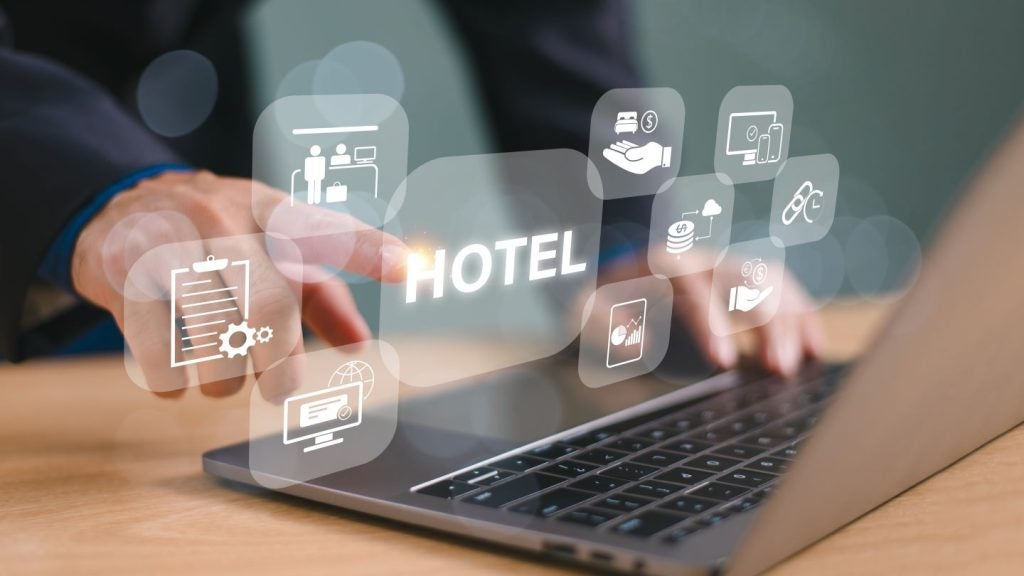
Social media provides hotel companies with the perfect interface for promoting business, but while expanding their network is good for revenue, management structures are facing unexpected challenges.
Six months ago, David Dumeresque, partner in executive search consultancy, Tyzack Associates, spoke to a number of people from lecturers to lawyers, CEOs and finance directors in the hotel sector and beyond about how social media is affecting their organisation internally.
Here he tells us how so-called digital natives are driving a fundamental shift in business management roles and how hotel companies are preparing for this.
Sarah Blackman: Which group of people is driving the change of management structures in the workplace?
David Dumeresque: The new generation of people entering the work place, who are known as digital natives and have grown up with this whole social media idea.
They use it as a matter of course rather than learning how to use it. Digital immigrants share information in a completely different way and have learned how to use social media, but digital natives have a different view on sharing information, so for somebody to turn round and say to them "sorry, you can’t share that information" is completely alien to them.
So, over the next few years, as these natives come into the workplace, information will be share horizontally and not vertically. This will be a huge challenge in the way you manage a business.
How well do you really know your competitors?
Access the most comprehensive Company Profiles on the market, powered by GlobalData. Save hours of research. Gain competitive edge.

Thank you!
Your download email will arrive shortly
Not ready to buy yet? Download a free sample
We are confident about the unique quality of our Company Profiles. However, we want you to make the most beneficial decision for your business, so we offer a free sample that you can download by submitting the below form
By GlobalDataSB: How were the participants using social media?
DD: Our research looked at how they were using social media as a way of communicating. Historically, if you go as far back as the industrial resolution, there’s been this "I know, I tell, you do" scenario. Managers have been able to use this tactic because in a traditional hierarchy, there will be two or three people reporting to the manager with one piece of information.
The manager is then able to give their orders because they have more information than their co workers.
With the advent of social media, this situation changes because people are able to instead say, "actually, I’m going to share information with my mates, not necessarily with the people you tell me to share it with."
SB: Will management roles dissolve as a result of these changes?
DD: No, but they will change. In most organisations, the role of "middle management" is to share information upwards and downwards through the organisation.
What you are going to see now is much flatter communication lines. So, middle management will no longer have power because they hold information, they will be much more of a mentor or guider and use their experience to help employees.
The way in which leaders are elected will also change. Stephen Fry was, and may still be, the most followed person on Twitter.
He didn’t go out and say "I’m going to be the most followed person on Twitter", it happened by accident. So as digital natives come into the workplace, they will be much more used to electing their own leaders rather than having leadership pushed upon them.
SB: How exactly will employees be able to elect their own leaders in an established work place?
DD: What we will see is a real breakdown of the old commander control style management and much more collaborative working.
For instance, if you have a project to do, management teams will traditionally choose who they want to work on the project, but in the future, a project may be advertised on an intranet saying "here’s a project, who is interested in being involved?"
You will then get groups of people who are involved in a project, not because they have been told to be, but because they are interested in being involved.
SB: Please provide an example of the impact social media will have on hotel management roles in particular.
DD: If you imagine a small group of half a dozen hotels and somebody is asked to organise a particular event, which maybe has a specific religious or dietary requirement, they will then be able to go on an intranet and ask "has anybody ever done this before? And how did you go about doing it?"
So they will be able share information more quickly and in a much more open fashion than before. They won’t have to go to their manager and ask how they should do it, but they can go to people with specific experience.
SB: How far down the line are we in seeing changes to business practices and management roles?
DD: We are right at the beginning. It’s the generation that is literally just coming into the workplace, so the 18 to 21 year-olds who are these real digital natives.
People who are going to be the next generation of leaders i.e. the leaders in 15-20 years time will not get on unless they are perceived to be a collaborator by their peers. If you are not a contributor, you will be overlooked.
SB: Are leaders feeling positive about these structural changes?
DD: A lot of them haven’t spotted them yet. The vast majority of the people I spoke to were not quite oblivious;, they could see it was going to be a problem, but it wasn’t something they had thought about before. Once they are made aware of it, they think, actually, this could be a massive problem.







